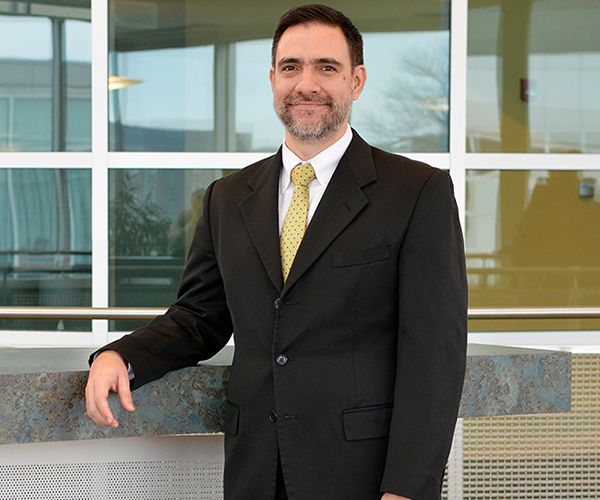Our Story
Facilitating campus-community partnerships since 2001.

Message from the Vice President for Engagement
Welcome to the Office of Engagement at Purdue University in West Lafayette, IN. Since our founding in 2001, our office has been facilitating partnerships between Purdue and our larger communities in service of Purdue’s engagement mission. Our engagement efforts span the state, nation, and globe. We aim to be the exemplar for faculty recognition and advancement based on the scholarship of engagement, as well as our awards for emerging faculty, staff, and community partners’ accomplishments. Ultimately, we strive to translate Purdue’s brain trust and resources into positive community and individual quality of life impacts. We invite you to explore our engagement programs and stories to gain a deeper understanding of our work and identify opportunities for partnerships that make a difference.
– Roberto Gallardo, Vice President for Engagement

MISSION + VISION
The Purdue Office of Engagement connects the university with communities and individuals in partnerships to make the world a more equitable, resilient and prosperous place for all, at home and across the globe. The Office fosters reciprocal relationships with external partners, leveraging university resources in teaching, research and engagement to solve societal challenges.

RECOGNITION
Purdue University is among a group of elite universities across the country that have been designated an Innovation and Economic Prosperity (IEP) University by the Association of Public and Land-Grant Universities (APLU). This designation recognizes our work with public- and private-sector partners to support economic development. We are pleased to have received APLU’s 2016 award for Innovation and 2019 award for Place as part of their IEP Universities program. In addition, Purdue has earned the Carnegie Foundation for the Advancement of Teaching’s Elective Classification for Community Engagement. Purdue was also the recipient of W.K. Kellogg Foundation Engagement Awards in 2014 (the Purdue Kenya Program; College of Pharmacy), 2016 (Star Behavioral Health Providers; the Military Family Research Institute), 2017 (EPICS), and 2019 (Joint Transportation Research Program).
STRATEGIC PLAN
Goal 1: Develop, implement, and support a brand strategy that increases the university’s capacity for engagement.
- Brand | Create a brand identity, strategy, and toolkit for the Office of Engagement.
- Visibility | Build and staff internal systems to increase Purdue Engagement visibility among external stakeholders and stakeholders within the university, systemwide.
- Accessibility | Build and staff internal systems to increase Purdue Engagement accessibility among external partners and partners within the university, systemwide.
Goal 2: Advance, support, and reward engaged scholars, including faculty, staff, and students across all three mission areas within the Purdue system.
- Advance | Enhance programming and partnership synergies within the Purdue University system.
- Support | Build and staff internal systems to increase Engagement support among faculty, staff, and students across the Purdue system.
- Reward | Expand recognition and reward for engaged work across the entire system, all mission areas, and both graduate and undergraduate students.
Goal 3: Connect and collaborate with organizations, communities, and regions to address current and emerging real-world issues and opportunities, leveraging partner and university talent, resources, and innovative programming.
- Connect | Expand the external engagement network and resources available to support engagement.
- Collaborate | Engage with external partners in collaborations addressing areas of challenge and opportunity across sectors, locally and across the globe.
LAND GRANT HISTORY
Land-grant universities emerged from a push for rapid industrialization in the United States and the need for a labor force equipped to meet the rising demand. Under the 1862 Morrill Act which came to be known as the Land Grant College Act, Vermont congressman Justin Smith Morrill called for government support of higher education to ensure access for all social classes. The Morrill Act forever changed the face of higher education in the U.S. and set up the expectation that universities had a responsibility to serve the state that supported them as well as contribute to the well-being of the country. Land-grant universities were established and granted each state federal land for the establishment of schools dedicated to teaching “agriculture and the mechanic arts”.
LAND ACKNOWLEDGMENT
We acknowledge that the land which was granted for the establishment of these universities amounts to nearly 11 million acres of tribal land taken from Native communities. This innovation which broadened access to education for the average American also came at the expense of Indigenous people in this country. Therefore, the Office of Engagement acknowledges the traditional homelands of the Indigenous People which Purdue University is built upon. We honor and appreciate the Bodéwadmik (Potawatomi), Lenape (Delaware), Myaamia (Miami), and Shawnee People who are the original Indigenous caretakers.